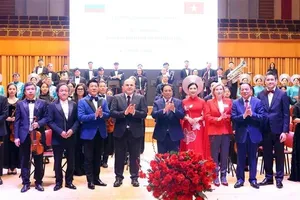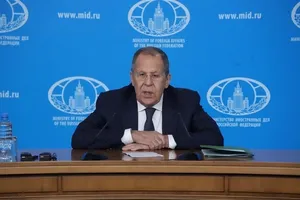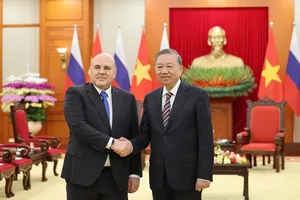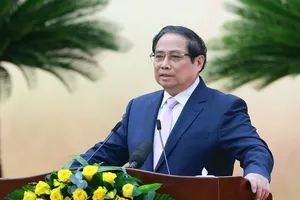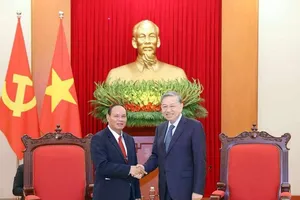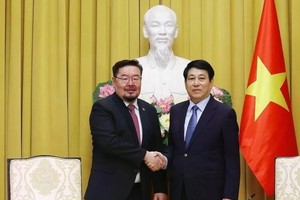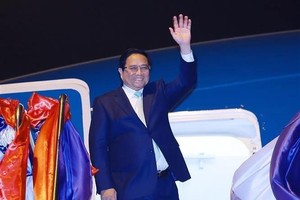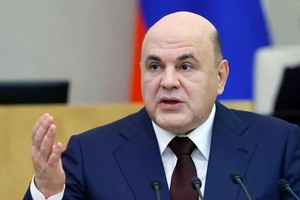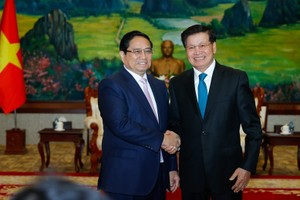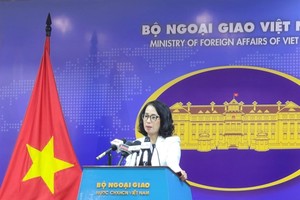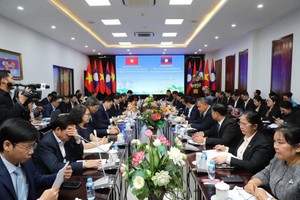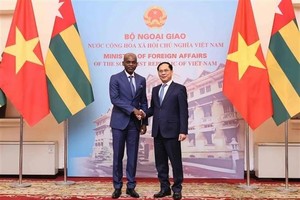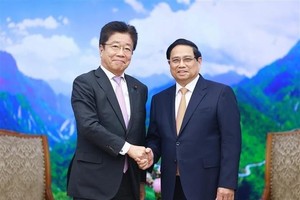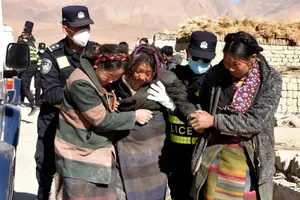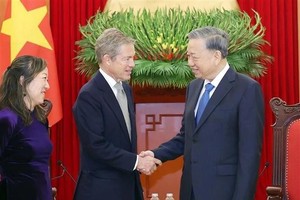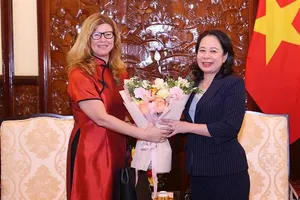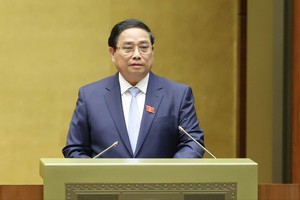France's Christine Lagarde sought to rally support for her bid to lead the International Monetary Fund, promising on a visit to Brazil to "deepen" reforms at the institution.
Lagarde, France's finance minister, was in Brazil -- one of several emerging nations seeking an end to Europe's stranglehold on the powerful post -- on the first stop of an international tour.
"The main priority ahead is to continue and deepen reforms" in running the IMF, she said after a working lunch with her Brazilian counterpart Guido Mantega and Brazilian central bank chief Alexandre Tombini.
"What I think is important for monetary policy is that there is sufficient coordination in exchange rates, for achieving stability," she told reporters after talks here, emphasizing the need for "relatively stable and predictable" exchange rates, in response to criticism from emerging economies that the low value of the US dollar impacts negatively on their respective currencies.

Lagarde told Europe 1 radio earlier that she would be visiting Brazil, China, India and "certain African countries" as part of her tour, noting that Brazil had been the first state to respond to her proposal.
Brazil is among the so-called BRICS group of emerging economic powers that also includes Russia, India, China and South Africa, which have criticized Europe's grip on the IMF, but have failed to agree on a candidate of their own.
Lagarde, a 55-year-old former lawyer, has been France's finance minister since 2007 and is heavily favored to succeed Dominique Strauss-Kahn as the top IMF official.
Strauss-Kahn, also French, has been charged with sexual assault in New York and resigned on May 19. He is on bail in the United States awaiting trial for attempted rape.
Traditionally, a European -- most often from France -- has led the IMF since its founding in 1945, while the United States supplies the president of the World Bank.
European countries consider Lagarde's appointment as the next head of the IMF all but a done deal after US Secretary of State Hillary Clinton hailed her candidacy, a European official told AFP at the G8 summit.
So far, Lagarde has two declared rivals: Mexico's central bank chief Agustin Carstens and Kazakh central bank boss Grigory Marchenko.
Brazilian officials have said that Carstens was expected in Brasilia on Wednesday.
Brazil and the other BRICS states have not agreed on a candidate, much less one with the broad support Lagarde has drummed up so far.
Brazil, like other emerging powers, will likely seek to boost its own IMF profile in talks with Lagarde, and may seek a guarantee that the next managing director will be from one of the BRICS states.
A silver-haired former champion synchronized swimmer, Lagarde chaired top US law firm Baker and McKenzie before she was persuaded to abandon her Chicago boardroom by then Prime Minister Dominique de Villepin.
De Villepin made her France's trade minister, and she later took over the agriculture portfolio.
Her candidacy got a major boost at the G8 summit held in Deauville, France. Just two days after she started campaigning officially she had amassed a united bloc of support from European nations, and also enjoys the likely support of Russia and the United States.
The IMF is due to publish a full list of candidates by June 17. The final selection is expected to be announced by June 30.
The executive board, whose members represent a country or a group of countries, is aiming to select the next chief by consensus, but could resort to a vote.
